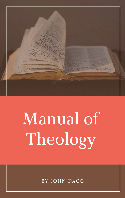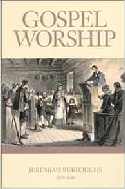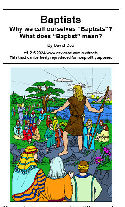Ads
What does the Atonement Mean? Atonement is essentially what it takes to make God accept us and overlook our sins.
Contents
What is Atonement in the Bible?
Essentially, the Bible portrays the concept of Atonement as what it takes in order for God to forgive us of all of our sins and accept us into His house (heaven) and fellowship forever (eternity).
Most groups and people do not understand how important and grave sin is in God’s eyes. They think it is a “little thing” and that because all people sin, that God truly gets upset with only grievous sins (think what Hitler did).
But really, God is greatly upset at even “our small sins.” How do we know that? Because with even small sins, Christ had to die on the cross. So first, Jesus Christ, fully God, and the Supreme object of the Father’s love, had to become man in order that he could die on the Cross in order to pay that debt that we could not pay.
How do different groups understand Atonement?
Within Roman Catholicism, the debt is paid several ways. First of all, the debt is paid by each individual in how they fulfill the Catholic Sacraments. A sacrament to them is anything that they declare will communicate grace to the individual. So participating in Mass, baptism, marriage, etc. will fill up their account with positive credits that will eventually at some point most probably make a tipping point and the person will be saved. The sin of presumption is that you presume you are already saved. Nobody can no that point without committing the sin of presumption. So they condemn their people to forever be in the dark about their own salvation until some time when the die and then they will know.
How was the atonement accomplished?
Jesus Christ took on to himself human flesh in the incarnation and after that, Jesus died on the cross. Involved in this was Jesus representing all mankind. His shedding of his own blood voluntarily for us is a substitution. The value of Jesus is that he is fully God, the Beloved of the Father, and God corporately offered Jesus’ death on the cross to appease God’s wrath over sin.
See Works on or about the Atonement (twmodules.com)
- Alexander, Archibald – A Brief Compend of Bible Truth
- Aycock – Crimson Stream
- Boettner – Atonement
- Boettner – Limited Atonement
- Bonar H – The Rent Veil
- Burge, C.- Atonement: Showing its Nature, Its Necessity, and Its Extent.
- Caulkins, T. – The Spurious Tulip v1.1
- Cooper, David L. – Messiah in His Historical Appearance
- Edersheim, Alfred – OT Temple – Its Ministry and Service
- Grant, FW – Atonement
- Luginbill – Christology Study of Christ
- Miley Systematic Theology (2 vols)
- Newberry, Thomas – Types of the Levitical Offerings
- Plumer, William S. – Grace of Christ
- Pollock, A.J. – Tabernacle’s Typical Teaching
- Pope – Compendium of Christian Theology
- Pope – Compendium of Christian Theology
- Reid – The Blood of Jesus
- Strauss -The Atonement
- Winslow Experimental Practical views of the Atonement
- Wiseman-From Pollution to Purity
- Wolston, W.T.P. – Records of Grace
- Zwemer, Samuel – Glory of the cross

Dagg Manual of Theology (and links to this work in various other formats).
Dagg Manual of Theology (MySword for Android)
Dagg Manual of Theology (theWord Bible Format)
Dagg Manual of Theology (esword format)
Dagg Manual of Theology (PDF Format)





 Is doing good works the same as being righteous?
Is doing good works the same as being righteous?